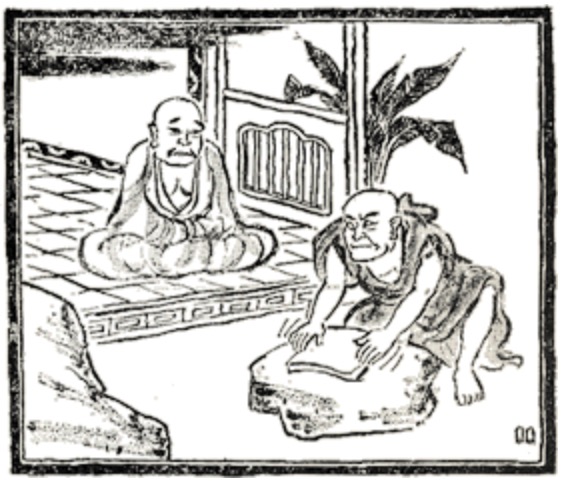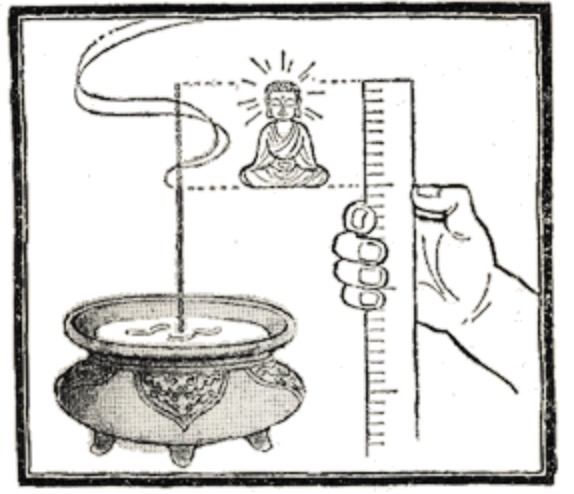Practice and Realization are one: Once upon a time during the Tang Dynasty in China, there was a monk called Mazu Daoyi who was undergoing training. One day, he was practicing zazen alone when along came his teacher, Nanyue Huairang (Nangaku Ejo, in Japanese), who asked, “Brother, your zazen is truly admirable, but just what are you trying to accomplish by it?”

“I’m trying to bring about realization,” Mazu answered, and at this Nanyue fetched a tileand began rubbing it on a rock. Mazu, seeing this and thinking it strange, asked, “What are you doing?” “I’m going to polish it and make a mirror,” Nanyue responded. When Mazu objected Nanyue retorted, “Even if you polish it you can’t make a mirror of a tile!” “And do you think you can awaken realization by practicing zazen?”
This is a little story which warns us not to use zazen as a means of gaining realization. There is a deep philosophical meaning here, but not even going into that, Zen teaches that practice is not to be used as a means of gaining realization, and that true actualization is pure and does not seek rewards or compensation. There is something our every day minds find difficult to agree with, but somehow or another we must see it this way if our actualization is to be genuine. This is a fact which confronts us twenty-four hours a day seven days a week.
There is the following passage in Mr. Jiro Abe’s Santaro’s Diary:

“We grow through romantic love. Whether this love succeeds or fails, we still grow. However, to love in order to grow is not real love; it is only an experiment in love. As long as we consciously have growth as a goal, an experiment in love cannot be complete. When neither success nor failure can change this love, then for the first time the experience permeates our very being. As a result of that kind of love, we grow..
via https://global.sotozen-net.or.jp/eng/library/stories/book1.html #Mindful